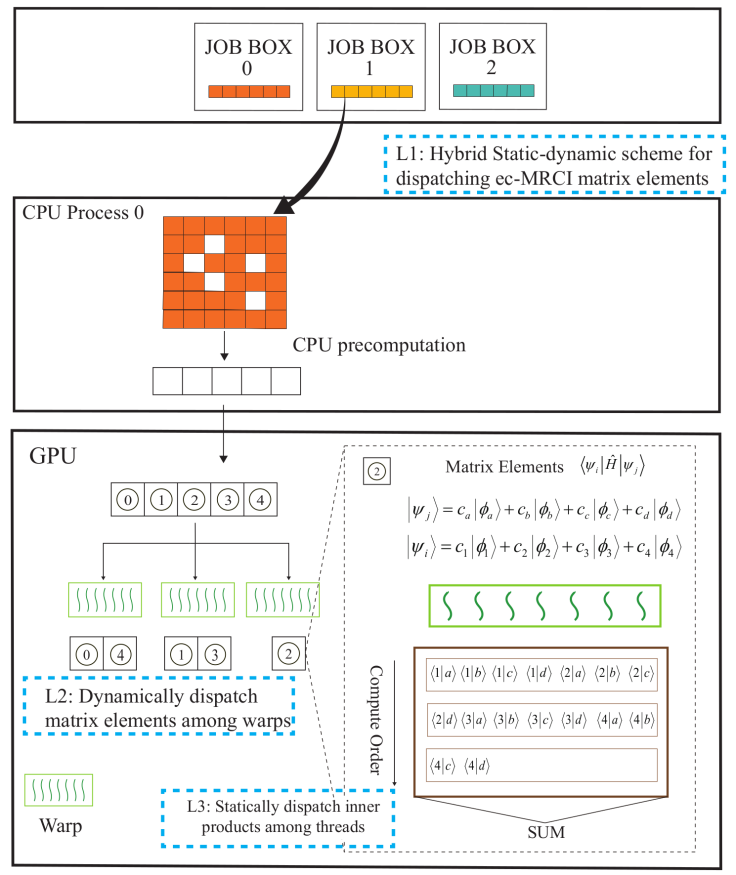ORISE Supercomputer facilitates the study of Quantum Chemical Strongly Correlated System
The calculation of dynamic correlation energy is crucial for solving strongly correlated systems in quantum chemistry. Recently, researchers from our center's High-Performance Computing Department, in collaboration with scientists from Nanjing University and Shandong University, developed a heterogeneous parallel computing framework called PASCI, which enables efficient computation of dynamic electron correlation. Key features of the framework include:(1) GPU algorithms that avoid branching divergence, (2) a three-level load mapping strategy to ensure load balance among processes, GPU warps, and GPU threads, (3) memory usage and performance models, and (4) integration with existing quantum chemistry software. Experimental results on the NVIDIA A100 GPU have shown that the new GPU algorithm achieves an average performance improvement of 6.6 times (up to 13.8 times) compared to the original GPU algorithms, resulting in acceleration by 2-4 orders of magnitude in practical usage. Furthermore, PASCI exhibits excellent scalability on the ORISE supercomputer, demonstrating its potential as a powerful high-performance computing tool for complex quantum chemistry studies.
The research team's achievements will contribute to the advancement of quantum chemistry, particularly in the study of complex electronic structures in large-scale and strongly correlated chemical systems. The successful development of the PASCI framework provides valuable insights for accelerating determinant-based configuration interaction calculations. This breakthrough offers more accurate and efficient tools for solving real-world chemical problems and designing new functional materials.

This research was accepted by the International Conference on Parallel Processing (CCF B). Runfeng Jin, a doctoral student from our center, is the first author of the paper. The corresponding authors are Professor Zhong Jin and Associate Professor Yingjin Ma from our center and Professor Ma Haibo from Shandong University.
This work was supported by the Strategic Priority Research Program of the Chinese Academy of Sciences, the National Natural Science Foundation of China, and the Youth Innovation Promotion Association of CAS.
Related work:
Runfeng Jin, Wenhao Liang, Haoyuan Zhang, Yinxuan Song, Zhen Luo, Haibo Ma, Yingjin Ma, and Zhong Jin. 2024. PASCI : A Scalable Framework for Heterogeneous Parallel Calculation of Dynamical Electron Correlation. In The 53rd International Conference on Parallel Processing (ICPP ’24), August 12–15, 2024, Gotland, Sweden. https://doi.org/10.1145/3673038.3673098
